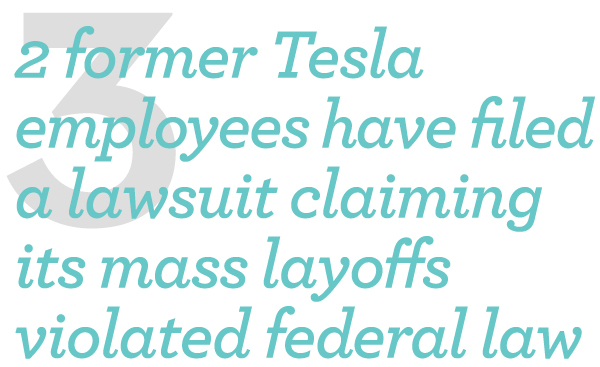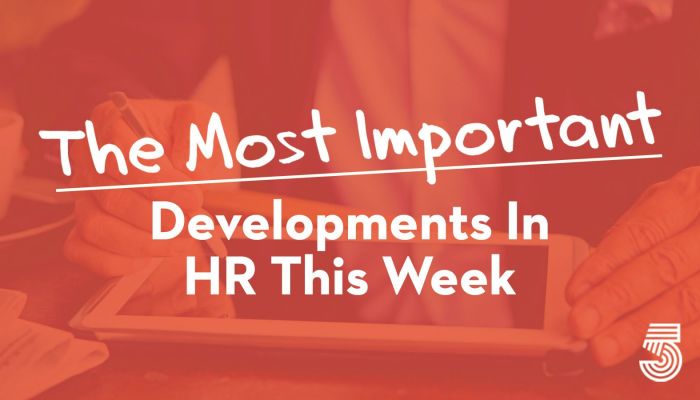The M.I.D., as we call it, is curated by our editorial team from more than 50 news sources. Like a lot of good ideas, this started as something I wanted for myself. If I can’t read everything, I at least want to stay abreast of the most important developments.
This week in HR, employers absorbed the news that Roe V. Wade has been overturned; we saw an example of how to do layoffs right (JPMorgan) and how to do them wrong (Tesla); a bear market tested the values of tech companies, and HR continues to reinvent the workplace.


The U.S. Supreme Court in a June 24 decision upheld Mississippi’s restrictions on abortion, a ruling that may lead employers to revise their employee health care benefits. SHRM research finds some companies may add coverage of travel expenses to obtain medical procedures, including abortions, not available nearby, or consider changes to parental leave and caregiving benefits. In states such as Texas, where a new state law bans most abortions after about six weeks and allows private citizens to sue anyone (in Texas or elsewhere) who “aids or abets” a prohibited abortion, “we are likely to see litigation of this issue” of employers reimbursing abortion travel and providing related benefits, said Meredith Kirshenbaum, a principal in the Chicago office of law firm Goldberg Kohn. SHRM


JPMorgan Chase & Co. is laying off hundreds of home-lending employees and reassigning hundreds more this week as rapidly rising mortgage rates drive down demand in what had been a red-hot housing market. The total affected will be more than 1,000 U.S. workers, with about half moved to different divisions within the bank, according to people familiar with the matter who asked not to be identified discussing personnel matters. “Our staffing decision this week was a result of cyclical changes in the mortgage market,” a JPMorgan spokesperson said in a statement Wednesday. “We were able to proactively move many impacted employees to new roles within the firm, and are working to help the remaining affected employees find new employment within Chase and externally.” The cuts follow the Federal Reserve’s decision to boost interest rates to tame decades-high inflation. Last week, the Fed announced an increase of 75 basis points, the biggest hike since 1994. Thirty-year mortgage rates have already more than doubled from their record low in January 2021. Bloomberg


In a lawsuit filed Sunday, two former Tesla employees claim the electric carmaker violated federal law by laying off hundreds of employees on short notice. On June 2, Tesla CEO Elon Musk sent an internal email to executives saying he had a “super bad feeling” about the economy and saying the company needed to terminate about 10% of its salaried workforce, according to Reuters. Over the next few days, two workers at Tesla’s Gigafactory in Sparks, Nevada, say they were terminated, according to a court document seen by Insider. John Lynch said he was notified of his immediate dismissal on June 10, while Daxton Hartsfield said he was informed on June 15 and terminated on the same day. Lynch and Hartsfield, who filed the lawsuit, said at least 500 of their coworkers in Nevada lost their jobs at around the same time, the document showed. The court document showed the plaintiffs stated Tesla’s actions violated the Worker Adjustment and Retraining Notification Act, which requires employers to notify workers at least 60 calendar days in advance before shutting down a plant or laying off 50 or more workers at the same site. Business Insider


So far this year, the stock market has had its worst slump since 2008. IPO activity, a bellwether of companies raising capital, has come to a halt at least for the moment. According to Knowledge at Wharton, “the drop in IPO activity has been steep.” During Q1 of 2022, there were “77 IPOs that raised $12.2 billion.” This time last year saw 395 IPOs that raised $140 billion. Along the same lines, we started to see cracks in the venture capital arena, where first-quarter funding activity fell 13%, according to Crunchbase. As a consequence, fast-growing tech companies are reassessing their growth plans. With greater uncertainty about the timing of an IPO or the ability to raise the next capital round, some growth companies are taking steps to slow the rate of cash burn. In many cases, this has implications for employment levels. Forbes


A recent commentary in Fortune declared the office obsolete, prompting much discussion and debate. However, it’s Vitality Group’s view that reports of the death of the office have been greatly exaggerated. That said, the workplaces that thrive, enhance employee health and wellbeing, and buzz with energy and creativity — now and in the future — will look nothing like the offices that many deserted in 2020. We’ve given the future workplace a great deal of consideration in our quest to make people healthier and enhance and protect their lives. Our recently published research in the MIT Sloan Management Review examines the importance of adapting remote work policies to address work/life situations for employees to increase well-being and productivity. These findings and others from the research provide three key considerations: The future workplace is undeniably hybrid and needs to be reimagined. Collaboration and focus time require careful balancing. Supporting work/life balance requires personalization. HR Executive










